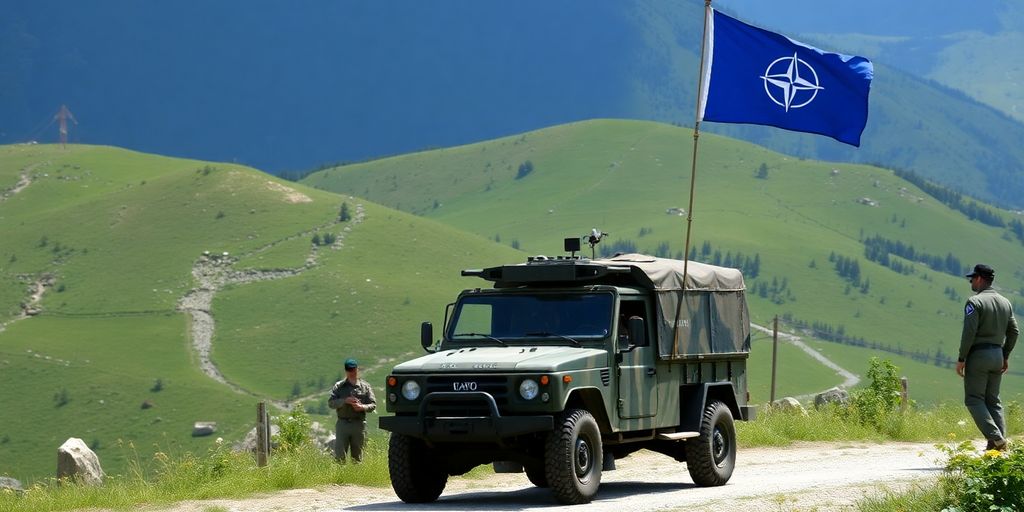NATO has reaffirmed its commitment to maintaining stability in the Western Balkans during recent high-level visits by key officials. The discussions focused on the region’s strategic importance and the need for continued cooperation among international partners to ensure peace and security.
Key Takeaways
- NATO emphasizes its long-standing commitment to the sovereignty and territorial integrity of Bosnia and Herzegovina.
- Ongoing support for the EU-facilitated dialogue between Belgrade and Pristina is crucial for resolving political tensions.
- NATO’s KFOR mission remains a vital component in ensuring a secure environment in Kosovo.
NATO’s Strategic Importance in the Region
The Western Balkans have been a focal point for NATO, particularly due to their geopolitical significance. Recent visits by NATO officials, including Assistant Secretary General Boris Ruge and Secretary General Mark Rutte, highlighted the Alliance’s dedication to regional stability.
During his visit from August 16 to 22, 2024, Ambassador Ruge engaged with leaders in Bosnia and Herzegovina, Kosovo, and Serbia. He underscored NATO’s commitment to preventing any security vacuum in the region, stating, "We will not allow any type of security vacuum to emerge."
Key Meetings and Discussions
- Bosnia and Herzegovina: Ruge met with senior officials, including the Minister of Foreign Affairs and the High Representative, emphasizing NATO’s support for the country’s sovereignty.
- Kosovo: In Pristina, discussions centered on the reopening of the Austerlitz bridge and the importance of dialogue in resolving disputes. Ruge reiterated NATO’s backing for the EU-facilitated dialogue between Kosovo and Serbia.
- Serbia: Meetings with Serbian President Aleksandar Vucic focused on enhancing NATO-Serbia partnerships and addressing accountability for past violent incidents in Kosovo.
Continued Support for KFOR
NATO’s KFOR mission, which has been operational for over three decades, plays a crucial role in maintaining peace in Kosovo. Secretary General Rutte, during his visit in March 2025, reaffirmed that KFOR is NATO’s longest and largest mission, dedicated to ensuring a safe environment for all communities in Kosovo.
Rutte stated, "A secure Western Balkans region means more security across the whole Euro-Atlantic area." He emphasized the importance of political solutions to ongoing tensions, urging both Belgrade and Pristina to engage in constructive dialogue.
The Path Forward
NATO’s commitment to the Western Balkans is not just about military presence; it also involves fostering political dialogue and cooperation among regional leaders. The Alliance encourages local political leaders to take responsibility for their country’s stability and progress.
- Political Responsibility: Leaders in Bosnia and Herzegovina are urged to respect the Dayton Peace Agreement and work towards national unity.
- Dialogue and Compromise: Both Kosovo and Serbia must show flexibility and willingness to compromise to achieve long-term peace.
Conclusion
As NATO continues to navigate the complexities of the Western Balkans, its commitment to regional stability remains unwavering. Through ongoing dialogue, military support, and cooperation with international partners, NATO aims to foster a secure and prosperous future for the region.
Sources
- News: NATO reaffirms commitment to regional stability as Assistant Secretary General Ruge wraps up
trip to Western Balkans, 16-Aug.-2024, NATO – Homepage. - News: NATO reaffirms its commitment to Western Balkans stability, as Secretary General Rutte wraps up
visits to Sarajevo and Pristina, 10-Mar.-2025, NATO.






